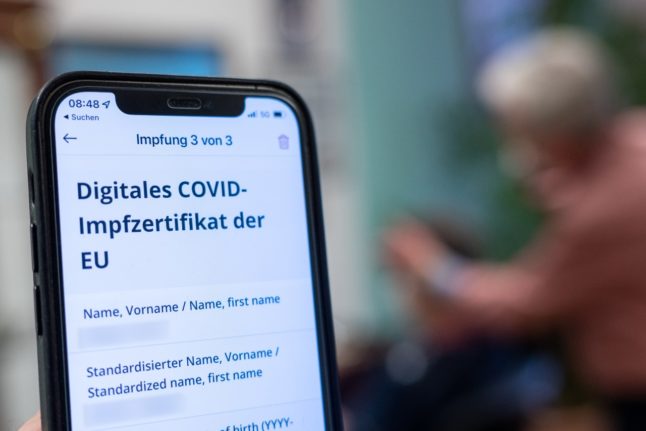A year ago Germany looked a lot different. To get into many public venues people needed to show proof of Covid vaccination, recovery from Covid, or a negative test (known as the 3G rule). In some cases only vaccinated and recovered people were allowed entry (2G).
These requirements were dropped months ago. And since January 1st 2023, the vaccination requirement for healthcare workers has also been abolished.
Nevertheless, many people in Germany still have apps for displaying vaccination certificates on their smartphones: the Corona warning app and the CovPass app. So do we still need them, or can people safely uninstall them?
Proof still needed for the USA and some other destinations
It depends a little on what you are planning to do: in Germany, proof of vaccination no longer plays a role. But abroad, things are sometimes different – especially in America.
If you want to travel to the United States as a non-US citizen, you still have to show proof of vaccination when entering the country. Even in some popular destinations in the USA, such as New York City, proof of vaccination is still required in some cases, for example to attend certain events or plays.
Those wishing to travel to the USA can also use other forms of proof of vaccination for this purpose – however, the apps make it particularly easy to access the required QR code and a vaccination certificate in PDF form.
Internationally, however, the US is pretty much on its own. Almost all nations have phased out their vaccination requirements over the course of 2022. Only Fiji, Papua New Guinea, Indonesia, and Hong Kong still require proof of vaccination for entry at the moment.
Some other nations still have provisions equivalent to the 3G rule, including Kenya, Nepal, and Venezuela.
Will there be a return of vaccination certificates in Europe?
In Germany and the EU, a return of vaccination certificates is currently very unlikely. Recently, restrictions continue to be removed throughout Germany, including the mandatory public transport masking in Bavaria and other German states. Despite the wintry weather, a return of 2G and 3G provisions is therefore not in sight.
One thing to keep in mind is the Covid situation in China. Lawmakers and health experts across Europe are currently discussing if Covid restrictions should be brought in across the board for people travelling from China due to the Covid wave there. That would likely involve testing on arrival, though, rather than showing proof of vaccination.
READ ALSO: German doctors call for Covid restrictions for China arrivals
Should I get rid of the Corona warning app, or Luca app?
The Corona-Warn app is a special case: it not only serves as a repository for vaccination records, but also for contact tracking. Currently, the operation of the Corona warning app is state funded until May 31st 2023, when it would have to be extended again. So anyone who wants to use this feature of the app can continue to do so until May.
Furthermore, Health Minister Karl Lauterbach recently said that the app will be developed furthermore.
The situation is different for the Luca app. Last year, it was discontinued by the federal states and turned into an app for mobile payments. It therefore no longer has anything to do with Covid-19.




 Please whitelist us to continue reading.
Please whitelist us to continue reading.
Member comments